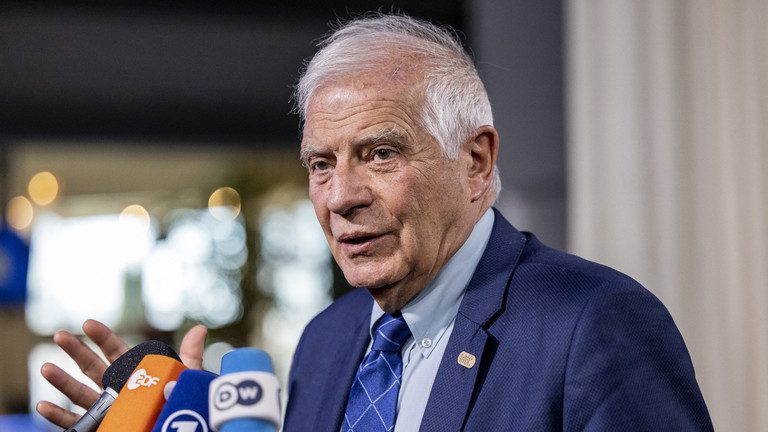Africa
EU imposes sanctions on the coup leaders in Niger, while the US prefers to be “pragmatic”

The European Union council asserts that the punitive measures aid in attempts to encourage a restoration of constitutional order in Niamey.
The European Union Council has developed a framework for penalising Niger’s recently enacted military government members who it thinks threaten regional peace and security and undermine the nation’s stability and democracy.
“This new autonomous framework for restrictive measures is set to make a tangible contribution in supporting the efforts of the Economic Community of West African States (ECOWAS) towards a swift return to constitutional order in Niger,” the EU council stated in a statement on Monday.
The EU’s additional sanctions include, among other things, enforcing a travel ban, freezing assets, and forbidding the distribution of payments to people and businesses.
ECOWAS ordered the deployment of a standby force after Nigerien soldiers who took over the nation of West Africa on July 26 disobeyed calls to reinstate the rule of deposed President Mohamed Bazoum.
In response to the putsch, some EU members, including Germany and France, have already suspended development assistance to Niamey. In an effort to get the military leaders to relinquish control and reinstate constitutional order, Berlin declared in August that it was supporting EU sanctions against them.
READ ALSO: Nigeria Wins $11 billion P&ID Case with “Awards Obtained By Fraud”
Josep Borrell, a top EU ambassador, has once again expressed the bloc’s rejection of the coup in the formerly French territory in the “strongest terms.”
“With today’s decision, the EU strengthens its support for ECOWAS’ efforts and sends a clear message: Military coups bear costs,” the official said.
Representatives of African states, including Niger’s, rejected foreign involvement when they gathered at a peace and security summit hosted in Togo’s capital, Lome, over the weekend, despite the EU’s commitment to sanctions and assertions that it supports ECOWAS efforts in this way.
Participants in the forum, which was organised by the African Union and was also attended by representatives from the ECOWAS region and the UN, emphasised the importance of finding regional solutions to the political issues brought on by coups on the continent. Although ECOWAS has threatened to intervene militarily in Niger, it maintains that negotiation is the preferred method of resolving disputes.
Meanwhile, the US has declared it will establish “pragmatic” relations with the new military government while only referring to the takeover in Niamey in July as a “coup d’état” this month. Judd Devermont, President Joe Biden’s special adviser for African affairs, told the Financial Times on Sunday that while it was “not business as usual” in Niamey, cutting ties with Niger was not an option and that the US needed to “add complexity” to its connections on the continent.
Contrary to Paris, which was compelled to sever connections with Niger and evacuate troops from its former colony, Washington has 1,000 soldiers stationed there despite cutting off almost $200 million in foreign funding.
